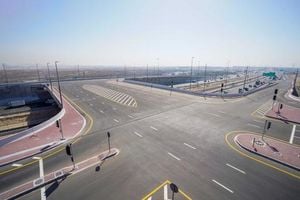Alberto Franceschini, a pivotal figure in Italy's tumultuous history, has died at the age of 78. His passing, which occurred on April 11, 2025, was only made public on April 26, marking the end of an era that many consider one of the darkest chapters in contemporary Italian history. Franceschini was one of the founding members of the Red Brigades, an organization notorious for its violent campaigns during the 1970s and 1980s.
Born in Reggio Emilia to a family with a strong communist background, Franceschini’s political trajectory was deeply influenced by his upbringing. He often described his revolutionary path as a "red thread" connecting the Italian Resistance to armed struggle, a sentiment he expressed without fully renouncing his past. According to reports, he stated, "Our great mistake was thinking that violence was a tool for changing society. We betrayed ourselves and our ideals." This reflection highlights the complex legacy he leaves behind.
Franceschini began his political career at a young age, joining the Italian Communist Youth Federation (Fgci). However, he quickly became disillusioned with the official policies of the Italian Communist Party (PCI) after a violent clash with the party's order service during a protest against the NATO base in Miramare di Rimini in 1969. This incident marked a turning point, leading him to distance himself from institutional communism.
In 1970, Franceschini took a decisive step into the world of armed struggle, co-founding the Red Brigades with Renato Curcio and Mara Cagol in Milan. This group would go on to commit numerous acts of terrorism, including kidnappings and murders, that left a profound impact on Italian society. Franceschini’s commitment to the cause was solidified when, in February 1971, he refused to report for military service and chose to go underground, making him the first brigatista to become a fugitive.
The Red Brigades quickly escalated their operations from propaganda to violent acts. Franceschini was implicated in several high-profile terrorist actions, including the assassination of two members of the neofascist Movimento Sociale Italiano in Padova on June 17, 1974, and the kidnapping of judge Mario Sossi in the same year. His actions led to a conviction that would see him sentenced to over sixty years in prison for various charges, including double homicide, armed gang formation, and kidnapping.
Franceschini's arrest came on September 8, 1974, alongside Curcio, thanks to the betrayal of Silvano Girotto, an infiltrator known as "Frate Mitra." Following his arrest, Franceschini became one of the most active brigatisti in special prisons, where he continued to promote the Red Brigades' ideology. However, in 1982, he officially dissociated himself from the armed struggle, expressing regret over the violence that had defined his life.
After serving 18 years, Franceschini was released from prison in 1992. He transitioned to a life focused on social and cultural activities, working with organizations such as Arci Ora d'Aria, which aimed at the reintegration of former prisoners into society. Despite his efforts to distance himself from his past, Franceschini remained a controversial figure, often sparking debates about the legacy of the Red Brigades and the broader implications of political violence in Italy.
Franceschini's re-emergence into the public eye came in February 2024, when he was spotted among a group commemorating Russian opposition leader Alexei Navalny in Milan's gardens dedicated to Anna Politkovskaya. This appearance reignited discussions about his past and the unresolved issues surrounding Italy's "Years of Lead," a period marked by extreme political violence.
His death has prompted renewed scrutiny of the Red Brigades' legacy and the societal impact of their actions. Many view Franceschini as a symbol of the radicalization of the extra-parliamentary left, while others acknowledge his later efforts to reflect critically on his past. The duality of his legacy raises questions about Italy's ability to confront its historical ghosts and navigate the thin line between political idealism and fanaticism.
As discussions about Franceschini's life continue, it is clear that he will be remembered both for his role in the violent upheavals of the 1970s and for his subsequent attempts at reconciliation with his past. His story serves as a reminder of the complexities surrounding political violence and the ongoing struggle to understand and address the consequences of such actions in contemporary society.
In the wake of his passing, many are left to ponder the lessons of Franceschini's life and the broader implications for Italy's political landscape. Franceschini's legacy is not just one of violence and terror, but also of reflection and the possibility of transformation, albeit in a context fraught with challenges and contradictions.





